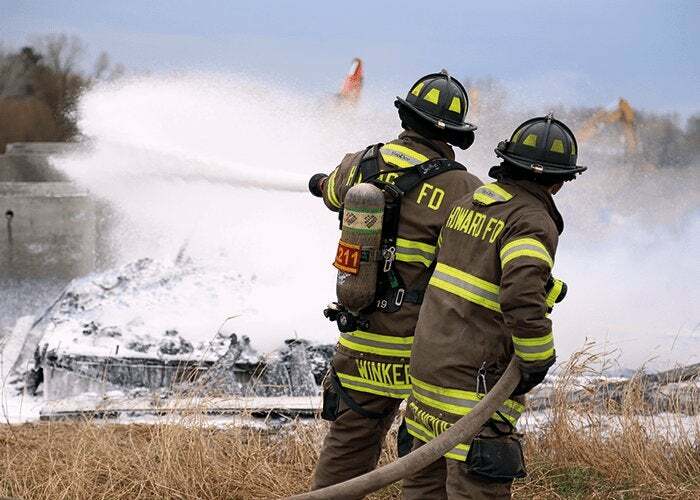Firefighters use wetting agents to make water wetter

Firefighters Use Wetting Agents to Make Water Wetter

When fighting fires, firefighters rely on the powerful force of water to extinguish flames and save lives. But have you ever wondered how they make water even more effective in combating blazing infernos? The answer lies in the use of wetting agents, specialized chemicals that make water “wetter” and significantly enhance its extinguishing capabilities.
Wetting agents, also known as surfactants or surface-active agents, are substances added to water to reduce its surface tension. By reducing the surface tension, water more easily spreads and seeps into materials, allowing it to quickly reach the fire’s core and effectively cool down the burning surfaces. This helps firefighters to extinguish fires faster and more efficiently.
One of the primary benefits of using wetting agents is their ability to penetrate various materials, including fabrics, woods, and other surfaces that may naturally repel water. By breaking down these barriers, wetting agents ensure that water can reach deep within the burning material, minimizing the chances of re-ignition. This ultimately enhances the overall firefighting operation’s success rate.

Another advantage of wetting agents is their ability to increase the heat-absorbing capacity of water. When applied to a fire, these agents create a foam-like blanket over the burning area, which acts as a heat insulator. This foam coating shields the underlying surfaces, preventing the fire from reigniting and providing additional time for firefighters to secure the area.
Moreover, the use of wetting agents also enables firefighters to use less water to achieve the same level of fire suppression. By lowering water’s surface tension, the total amount needed to extinguish a fire can be significantly reduced. This results in several benefits, including decreased water usage, reduced damage to property, and improved overall firefighting efficiency.
Several types of wetting agents are available, each designed to address specific fire scenarios. These agents range from long-lasting foams for combating large scale fire incidents to more simple solutions for everyday firefighting operations. The proper selection and application of wetting agents are crucial for firefighters to adapt to the unique challenges presented by each fire situation.
In conclusion, the use of wetting agents is a vital tool in the firefighter’s arsenal. These specialized chemicals make water “wetter” by reducing its surface tension, allowing it to penetrate materials more effectively. This results in faster and more efficient fire suppression while minimizing the chances of re-ignition. By utilizing wetting agents, firefighters can enhance their firefighting capabilities and protect lives and property with greater success.
Source: IFP Magazine
Related Posts
Quick Links
Legal Stuff

